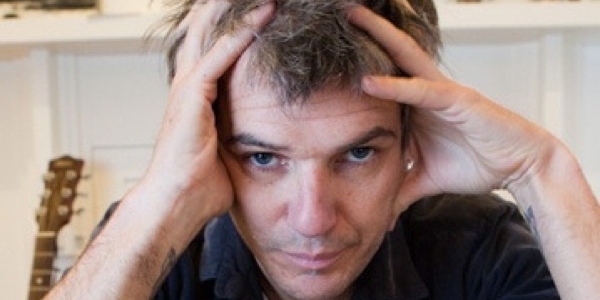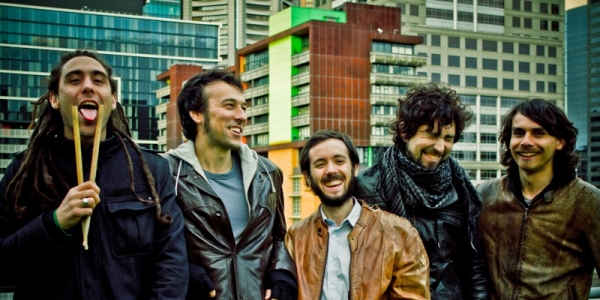With this success behind them, Barker, along with music director/guitarist Tommy Boyce (The Casanovas), guitarist Justin Garner (Southpaw), bassist Alex Raunjak (Electric Mary) and drummer Steve Brown (Electric Mary) are about to deliver their first non-theatre performance of the show at the Corner Hotel in honour of the 33rd anniversary of the passing of Bon Scott, who died at the age of 33.
One of the attractions of the show is the unexpected insights that it provides into Bon Scott’s colourful career and larger-than-life character. According to Barker, “I really want people to walk away with five or ten things that they really didn’t know when they got up that morning. A lot about Bon Scott is urban myth … people have this one image of him as this wild man of rock‘n’roll ,which he was, but there’s also this real vulnerability about him. The guy was also an incredible songwriter. I don’t think people really count him as that. He was really the quintessential street poet. He was always writing things down; ideas, limericks and poems. I’ve read a lot of his letters to people and he was incredibly articulate. He’s almost a highwayman-type figure. He was a lot more cultured than a lot of people realised.”
In addition to showcasing well-known AC/DC classics, Barker and the band take the crowd on an intriguing journey into more obscure musical territory. “People don’t realise that Bon was in a band called The Valentines which were a terrible bubblegum pop band that were around in the ‘60s,” laughs Barker. “He was also in a band called Fraternity in the ‘70s that were this nutty sort of prog rock band. In the show we go right from the start! We play songs from every single one of the bands he was in plus a couple of real oddities that he wrote … so the first half of the show is pretty tough going for a lot of people because it really is eclectic. The second half is pretty much balls-to-the-wall AC/DC and talking about how hard they worked to go and live in England.”
Barker’s role in the show is to be both storyteller and singer. He explains that when he is narrating Bon’s story, “It’s me talking from a fan’s point of view.” It has been easy for Barker to embrace the role of ‘fan’, as he grew up loving AC/DC and first glimpsed them on the ABCTV show Countdown .“It was slap bang in the middle of some pretty terrible music on Countdown, like Bay City Rollers” he laughs. Seeing AC/DC for the first time at 6.30pm on a Sunday night “was like punk rock to me! My sisters hated it and I loved it!”
Barker points out that when he’s singing, he’s not impersonating Bon. “There’s no way that I can sing like Bon. He was an incredible singer; some of the Fraternity stuff was mind-boggling. He could sing really high. I like that you can make [the songs] your own a little bit; It shouldn’t be about me getting up in a pair of flares and imitating Bon Scott. It’s a celebration of him and the music. It’s just attitude – that’s all that I can bring to it. ”
Barker chats passionately about the complexity of AC/DC’s songs. “They’re not easy songs to play,” he says. “A lot of the arrangements were just nuts. Some of the later stuff has these really long jamming bits that go on for ages, and keep changing. I’m certainly amazed by it!” He also praises the talents of Boyce, Garner, Raunjak and Brown in being able to “nail the stuff…the band is incredible!”
Discussing the difference between staging the show in a theatre and a pub, Barker explains that the performance at The Corner will be “an abridged version of the theatre show. I have tried to trim some of the dialogue. In a pub, because people are standing up drinking, they tend to get more involved. I don’t know if they will start shouting out requests. In a theatre you have a lot more control.” Of course, in a sticky-carpeted rock haven like The Corner it can be easier to turn up the amps to 11 without damaging the paintwork. “The problem with this show is it’s just too loud for some theatres” admits Barker. “At The Athenaeum I had chunks of plaster falling on my head!” Now, that’s what I call rock‘n’roll.
BY GRAHAM BLACKLEY







